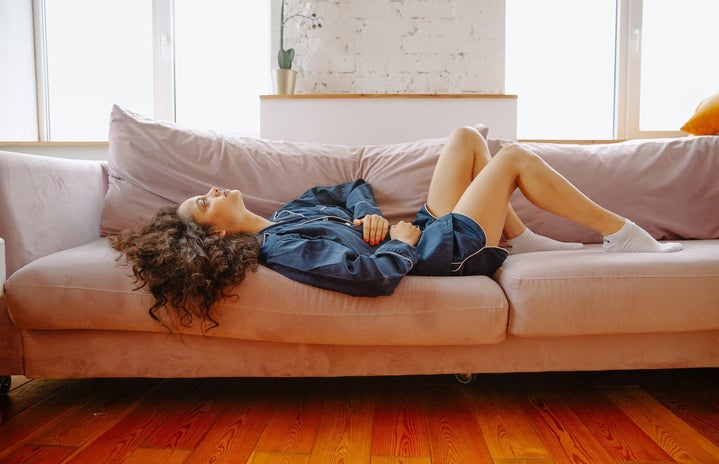When I first got my period at the ripe age of 13, I expected to get my second period on the same day one month later. But it didn’t come for about six months.
Female reproductive health is an area we often don’t talk about in depth and many aspects of it are overshadowed or completely unknown to the general public. One common issue among people who menstruate is having amenorrhea. Amenorrhea is the medical term to describe the absence of a menstrual period in a uterus-owning body around the natural reproductive age. There are different types, causes, and signs to talk to a doctor about, of course. But I am definitely not a doctor, so I will be discussing my own personal experience.
From the ages of about 13 to 18, I ran cross country and track and field. I would run miles for fun, which eventually led me to training intensely in high school to compete in my races. Every time I saw a doctor, I would tell them my period is irregular and that I was never sure why. The doctors gave me the same response every single time; I just work out a lot, I need to make sure I’m eating more, it’s just due to stress, etc. But I always left wondering why my body wasn’t regulating itself the same way other girls’ bodies were.
After taking the past year off from running, I just got a normal period again for the first time in ten months. I was so happy… even though the cramps were killer. To this day, however, I am still on the path to consulting medical professionals to find the cause of my sporadic menstrual cycles and hopefully regulate the cycles at some point if possible.
What I really want to discuss, though, is how strange the experience is as a young woman. Anyone with the reproductive organs may menstruate, but these physical and mental battles I had month after month with myself started to take a toll on my own identity. I love being a woman. Even with the knowledge that I am young and expected to keep growing into and regulating my body during the next few years, I felt slightly broken. I felt like I was, in a way, missing out by not having the typical experience with menstruation.
Another major issue lingering over my head was the future. I have no idea what I want down the line, but having kids is something women and child-bearing people usually have to add or remove from their timeline by a certain expiration date. Having all the options is something I expect to have, so diving into internet searches for causes and treatments for amenorrhea continued to make me more disappointed. It is as if my amount of personal choice mentally shrinks each month I don’t get a period.
These concerns are not new either; over the years, I’ve been introduced to female reproductive struggles across social media platforms that are willing to share personal stories. From Meghan Rienks dealing with endometriosis, to the wild effects birth control has on some, problems came to my attention way later than when we had a sexual education class in school.
With a lack of information, a demanding and rigorous training routine, and an already pent-up stress level, my reproductive journey throughout high school and up until this point in time has been an unexpected challenge. Especially for no true frame of familial reference — amenorrhea is something I looked into myself. Getting to know my body and advocating for it
when speaking to a doctor has been my main method of dealing with amenorrhea. I have high hopes that reproductive health measures for all are taken seriously and with great concern, or else more and more 13-year-old girls may become just as lost and confused as I used to be.


